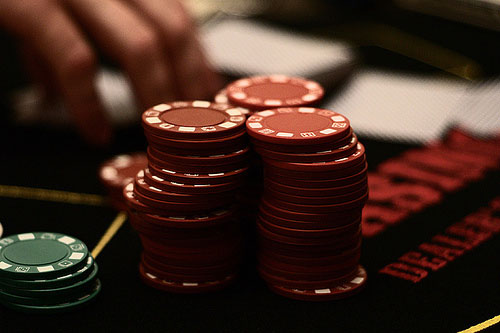como se cadastrar na bet nacional
mitzvahceremonies.com:2024/12/3 20:15:40

como se cadastrar na bet nacional
como se cadastrar na bet nacional

Evan Gershkovich: Jornalista do The Wall Street Journal Libertado como se cadastrar na bet nacional Troca de Prisioneiros
Evan Gershkovich, repórter do The Wall Street Journal, 🌧️ foi libertado na sexta-feira como se cadastrar na bet nacional uma troca de prisioneiros de grande alcance com a Rússia. Seus pais haviam deixado a 🌧️ União Soviética como se cadastrar na bet nacional 1979 devido ao antissemitismo e à falta de oportunidades. Eles se conheceram e se casaram nos Estados 🌧️ Unidos, onde criaram Evan ecomo se cadastrar na bet nacionalirmã mais velha, Danielle, com um pé como se cadastrar na bet nacional ambas as culturas, ensinando-lhes russo fluente.
Em 🌧️ 2024, o jovem Sr. Gershkovich mudou-se para Moscou para trabalhar no The Moscow Times, um jornal diário local como se cadastrar na bet nacional inglês, 🌧️ e trabalhou como se cadastrar na bet nacional diversas agências de notícias até se juntar ao The Journal como repórter como se cadastrar na bet nacional janeiro de 2024.
Ele estava 🌧️ realizando seu sonho de se tornar um correspondente estrangeiro, mas acabou passando seu 32º aniversário na prisão de Lefortovo, como se cadastrar na bet nacional 🌧️ Moscou, conhecida porcomo se cadastrar na bet nacionalrepressão.
luindo Canadá, Costa Rica e Irlanda, e excelentes recursos de segurança para
on-line. Além disso, você pode até obter um 🌈 IP dedicado que seria usado apenas por
. 5 Melhores VPNs para Rootbet Play dos EUA e outros países Cybernews 🌈 usando o
ys: best-vpn' vpno:
Condições não proíbem o uso de uma VPN para aumentar como se cadastrar na bet nacional segurança.
estrela bet bonus 200

Type of deceptive play in poker
Slow playing (also called sandbagging or trapping) is a
deceptive play in poker where a 5️⃣ player bets weakly or passively with a strong holding.
It is the opposite of fast playing. A flat call can 5️⃣ be a form of slow playing. The
objective of slow playing is to lure opponents into a pot who might 5️⃣ fold to a raise, or
to cause them to bet more strongly than they would if the player had played
5️⃣ aggressively (bet or raised). Slow playing sacrifices protection against hands that may
improve and risks losing the pot-building value of 5️⃣ a bet if the opponent also
checks.
David Sklansky defines the following conditions for profitable slow plays:[1]
A
player must have a 5️⃣ very strong hand.
The free card or cheap card the player is allowing
to his opponents must have good possibilities of 5️⃣ making them a second-best hand.
That
same free card must have little chance of giving an opponent a better hand or 5️⃣ even
giving them a draw to a better hand on the next round with sufficient pot odds to
justify a 5️⃣ call.
The player must believe that he will drive out opponents by showing
aggression, but can win a big pot if 5️⃣ the opponents stay in the pot.
The pot must not
yet be very large.
Seven-card stud example In a seven-card stud game, 5️⃣ Ted's first three
cards are all fours. Alice with a king showing bets first, Ted raises and Alice calls.
On 5️⃣ the next round, Alice catches another king, and Ted miraculously catches the last
four (making four-of-a-kind). Ted suspects Alice has 5️⃣ two pair or three kings, and Alice
suspects that Ted has two pair or three fours. Alice bets again, and 5️⃣ Ted just flat
calls. Ted decides to just call for next round or two, and maybe even check if Alice
5️⃣ doesn't bet, rather than raising, for several reasons. Ted's hand is so strong that the
chance of getting beaten is 5️⃣ negligible, so he doesn't need protection. If Alice just
has two pair and Ted acts strongly, Alice may think Ted 5️⃣ has three fours and fold if she
doesn't improve. By allowing Alice to continue for smaller stakes, Ted hopes that 5️⃣ Alice
will improve to a very strong (but second best) hand that will induce her to bet,
raise, or at 5️⃣ least call in the later betting rounds.
Relationship between slow playing
and bluffing [ edit ]
Against observant opponents, the frequency of 5️⃣ bluffing affects
the effectiveness of slow playing, and vice versa. If a player's table image is that of
an aggressive 5️⃣ bluffer, slow playing is less important because his opponents will be
more willing to call his usual bets and raises. 5️⃣ Similarly, if a player is perceived as
a "trappy" player (uses frequent slow plays), his bluffs are less likely to 5️⃣ be
respected (i.e., more likely to be called) because his opponents expect him to slow
play his strong hands.[2]
Check raising 5️⃣ as a slow play [ edit ]
A check-raise is not
necessarily a slow play. Often, the purpose of a check-raise 5️⃣ is to drive out opponents
from a pot, which is the opposite of the goal of a slow play.[1] However, 5️⃣ within the
context of a single betting round, check-raising can be employed as a slow play.
Draw
poker example Alice, Bob, 5️⃣ Carol, and David are playing draw poker. After anteing, Alice
starts with a pair of aces, and opens the betting 5️⃣ forR$2. Bob raises an additionalR$2,
bringing the bet toR$4. Carol folds. David calls theR$4, and Alice puts in an
additionalR$2 5️⃣ to match the raise. Drawing three cards, she receives another ace, and a
pair of fives. Since her aces-full is 5️⃣ almost certain to be unbeatable, it does not need
the protection of a bet. Also, Bob earlier raised, and David 5️⃣ called a raise, so they
likely have strong hands and one of them will bet if Alice doesn't. Finally, since 5️⃣ Bob
and David earlier showed strength, and they know that Alice knows this, Alice betting
into them would be seen 5️⃣ as a bold move likely to scare one or both of them off,
especially if they weren't as strong as 5️⃣ they seem. Alice decides conditions are right
for a slow play: Alice checks. As she hoped, Bob betsR$2. David thinks 5️⃣ for a minute,
then calls theR$2. Alice now springs the trap and raisesR$2. Bob calls the
additionalR$2, and David (who 5️⃣ now realizes that he is probably beaten) folds. Bob
reveals three sixes, and surrenders the pot to Alice. If Alice 5️⃣ had just bet her hand on
the second round, it is likely that Bob would just have called and David 5️⃣ may or may not
have called, earning AliceR$2 toR$4 on the second round. But with the slow play, she
earnedR$6.
Even 5️⃣ in games (such as California lowball) where the check-raise is not
allowed, one can make other sandbagging plays such as 5️⃣ just flat calling instead of
raising with a very strong hand and then later raising.
Fishing for the overcall [ edit
5️⃣ ]
Fishing for the overcall occurs when the last card a player is dealt makes him a very
strong hand, an 5️⃣ opponent in front of him bets, and there are more opponents yet to act
behind him. While the player might 5️⃣ normally raise with his hand, just calling may
encourage the opponents behind him to overcall when they would have folded 5️⃣ to a raise.
For this play to be used profitably, one or more conditions like the following must be
met:
The 5️⃣ original bettor is all-in and therefore has no money to call a raise.
The
player is confident that the original bettor 5️⃣ was bluffing and would not call a
raise.
There are several opponents yet to act. If there is only one opponent 5️⃣ yet to
act, then getting the overcall would gain no more money than raising and having the
initial bettor call.
The 5️⃣ opponents are likely to overcall the initial bet, but not a
raise. This play sacrifices the profit that might have 5️⃣ been made from opponents who
would have overcalled a raise.
A common example of fishing for overcalls occurs in
High-low split 5️⃣ games like Omaha hold 'em. If John is confident that Mary is betting a
high hand, then John might flat 5️⃣ call with his low hand to fish for overcalls rather
than make it more difficult for opponents to call. If 5️⃣ John were to raise, he and Mary
would gain no profit at all if no other opponents called.[3]
See also [ 5️⃣ edit ]
artigos relacionados
2024/12/3 20:15:40